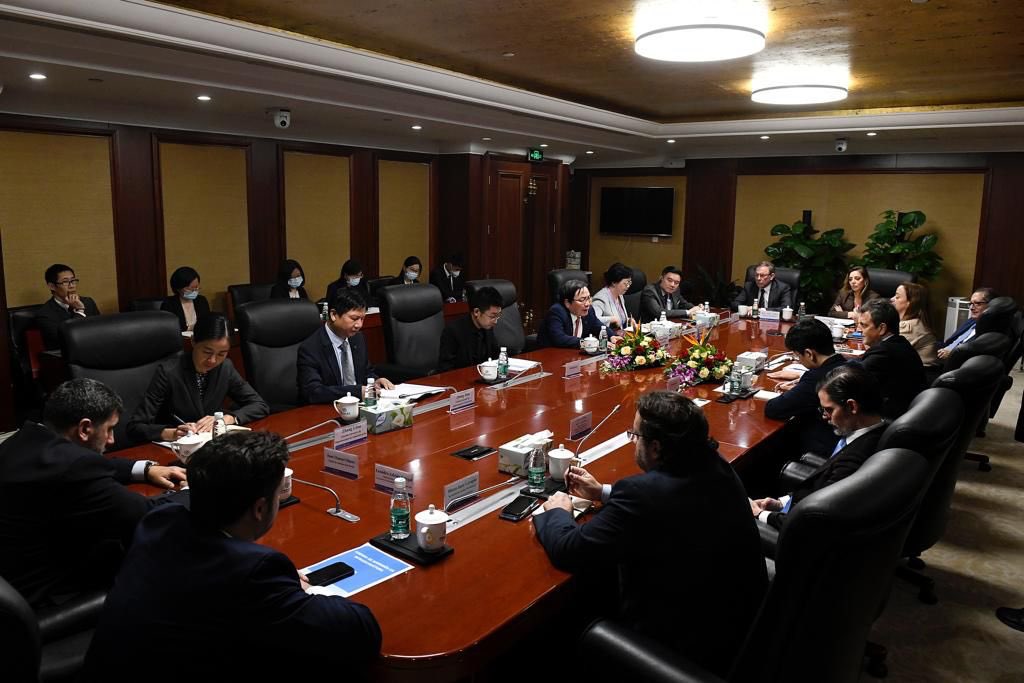Argentina reaffirmed its ties with China this week as Economy Minister Sergio Massa traveled to the Asian country to seek economic help amid a major financial crisis.
The two nations said they would promote the Belt and Road Initiative, which Argentina joined last year, aiming to cooperate on issues ranging from infrastructure and finance to energy and trade.
Argentina became the largest Latin American country to join the Belt and Road Initiative in 2022, following in the footsteps of neighbors such as Peru, Chile, Uruguay, Ecuador, and Venezuela. Large regional markets such as Brazil, Colombia, and Mexico are still coveted by Beijing as potential future additions.
The country is trying to navigate the complex relationship between China and the U.S. by seeking help from both.
Argentina owes nearly USD 50 billion to the International Monetary Fund (IMF), where U.S. and other Western influence is central, and the government of President Alberto Fernández has been trying to defer payments or move up disbursements amid a record drought that has affected its main source of exports this year.
But the IMF is skeptical about helping Argentina further, given the record loans it already extended to former President Mauricio Macri’s administration in 2018.
With that in mind, Argentina is now also turning to China for financial help, seeking to expand a currency swap line between their central banks. In practice, the swap acts as a loan for Argentina to import Chinese products at a high interest rate.
According to the Argentinian press, the swap could be expanded from USD 5 billion to USD 10 billion by the end of Mr. Massa’s visit.
Finally, Argentina is also lobbying for closer ties with the BRICS, a group including Brazil, Russia, India, China, and South Africa.
Former Brazilian President Dilma Rousseff, who currently chairs the BRICS bank, said this week that the bank will analyze Argentina’s entry in August, although hurdles remain due to Argentina’s weak financial position — the country would struggle to offer any capital to the bank in its current economic quagmire.


 Search
Search






































